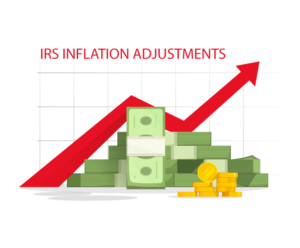Sec1244 Small Business Stock Sales

Sec1244 Small Business Stock Sales
Section 1244 of the Internal Revenue Code, the small business stock provision, was enacted to allow shareholders of domestic small business corporations to deduct as ordinary losses, losses sustained when they dispose of their small business stock. In order to receive this beneficial treatment, the Code prescribes specific requirements for: (1) the corporation issuing the small business stock; (2) the stock itself; and (3) the shareholders of the corporation.
The corporation issuing the stock must qualify as a domestic small business corporation, which generally means that it must be created under the laws of the United States and that its aggregate capital must not exceed $1,000,000 at the time the §1244 stock is issued to its shareholders. The first taxable year in which the capital of the corporation exceeds $1,000,000 is called the transitional year, and the corporation must designate which shares issued that year qualify for §1244. For example, if a newly formed corporation received $2,000,000 for its initial issue of stock, it could designate up to $1,000,000 of its stock as qualified §1244 stock.
The corporation must also satisfy a gross receipts test. This test requires that the corporation, during the period of its five most recent years ending before the date the loss on its stock was sustained, derive more than 50% of its gross receipts from sources other than passive investment income. The gross receipts test thereby confines the tax relief provided by the small business stock provision to the stock of corporations actively engaged in a trade or business. The gross receipts test does not apply where, for the entire period for which gross receipts are measured, the gross income of the corporation is less than the business deductions allowed to the corporation by the Code.
The Code also imposes recordkeeping requirements on the corporation relative to its §1244 stock. Among these is a requirement that the corporation designates, for its transitional year, those of its outstanding shares that qualify for small business stock treatment.
Common stock, and preferred stock issued after July 18, 1984, qualifies as §1244 stock. In order to qualify as §1244 stock, the stock must be issued, and the consideration paid by the shareholder must consist of money or other property, not services. Stock and other securities are not “other property” for this purpose. However, cancellation of indebtedness may be a sufficiently valid consideration.
Section 1244 is available only for losses sustained by shareholders who are individuals. Losses sustained on stock held by a corporation, trust or estate do not qualify for §1244 treatment. Subject to very limited exceptions, the benefits of §1244 are only available to individuals who acquire the stock by issuance from a domestic small business corporation and are not available to a subsequent transferee of the stock. In some cases, a partnership can qualify as a shareholder of §1244 stock. Generally, all transfers of §1244 stock by the shareholder, whether in a taxable or nontaxable transaction, whether by death, gift, sale or exchange, terminate §1244 status.
Once all of the requirements of §1244 stock are met, ordinary loss treatment for losses on a sale or exchange of §1244 stock is permitted if the loss would otherwise be treated as a capital loss. The amount of ordinary loss that an individual taxpayer may realize by reason of the small business stock provision is subject to certain limitations. Any amount of §1244 loss in excess of this limitation is treated as a capital loss. For losses incurred in taxable years beginning after 1978, the maximum amount that a taxpayer may claim as an ordinary loss for all losses sustained on §1244 stock in a taxable year is $50,000, generally, or $100,000 if a joint return is filed.
Because the rules under §1244 are complicated, we encourage you to contact us to discuss how they apply to your situation.
We hope you found this article about “Sec1244 Small Business Stock Sales” helpful. If you have questions or need expert tax or family office advice that’s refreshingly objective (we never sell investments), please contact us or visit our Family office page or website www.GROCO.com.
To receive our free newsletter, contact us here.
Subscribe our YouTube Channel for more updates.

Alan Olsen, is the Host of the American Dreams Show and the Managing Partner of GROCO.com. GROCO is a premier family office and tax advisory firm located in the San Francisco Bay area serving clients all over the world.
Alan L. Olsen, CPA, Wikipedia Bio

GROCO.com is a proud sponsor of The American Dreams Show.

The American Dreams show was the brainchild of Alan Olsen, CPA, MBA. It was originally created to fill a specific need; often inexperienced entrepreneurs lacked basic information about raising capital and how to successfully start a business.
Alan sincerely wanted to respond to the many requests from aspiring entrepreneurs asking for the information and introductions they needed. But he had to find a way to help in which his venture capital clients and friends would not mind.
The American Dreams show became the solution, first as a radio show and now with YouTube videos as well. Always respectful of interview guest’s time, he’s able to give access to individuals information and inspiration previously inaccessible to the first-time entrepreneurs who need it most.
They can listen to venture capitalists and successful business people explain first-hand, how they got to where they are, how to start a company, how to overcome challenges, how they see the future evolving, opportunities, work-life balance and so much more..
American Dreams discusses many topics from some of the world’s most successful individuals about their secrets to life’s success. Topics from guest have included:
Creating purpose in life / Building a foundation for their life / Solving problems / Finding fulfillment through philanthropy and service / Becoming self-reliant / Enhancing effective leadership / Balancing family and work…

MyPaths.com (Also sponsored by GROCO) provides free access to content and world-class entrepreneurs, influencers and thought leaders’ personal success stories. To help you find your path in life to true, sustainable success & happiness. It’s mission statement:
In an increasingly complex and difficult world, we hope to help you find your personal path in life and build a strong foundation by learning how others found success and happiness. True and sustainable success and happiness are different for each one of us but possible, often despite significant challenges.
Our mission at MyPaths.com is to provide resources and firsthand accounts of how others found their paths in life, so you can do the same.
Athletes Could See Big Tax Savings With Trump Proposals
It’s no secret that Donald Trump’s proposed tax plans would definitely benefit the nations’ wealthiest individuals. The president elect has made it clear he wants to overhaul our country’s tax system and his stated proposals indicate that the wealthy will see a healthy increase in the amount of money they get to keep. Among…
Tax Tips for Entrepreneurs
If you’re looking to start a new company in the coming year then you certainly have a lot on your mind, not the least of which is how you will get started, what will you do to market your company and what are your chances of achieving success. The concerns and issues are endless…
IRS Announces New Inflation Adjustments for 2017
While the 2016 tax year is still not quite over, the IRS has already announced some important inflation adjustments for the 2017 tax year, which taxpayers will file for in 2018. While you might be more worried about your upcoming tax return, there are some important changes to know about. However, that being said,…
IRS Changes Deadlines for 1099 Forms
It’s almost January. Are you ready for taxes? Of course, Form 1099s are an important part of any tax season, and this coming year will be no different. As a taxpayer, if you receive any kind of Form 1099 don’t ignore it. The IRS will get the same form and you will be held…




